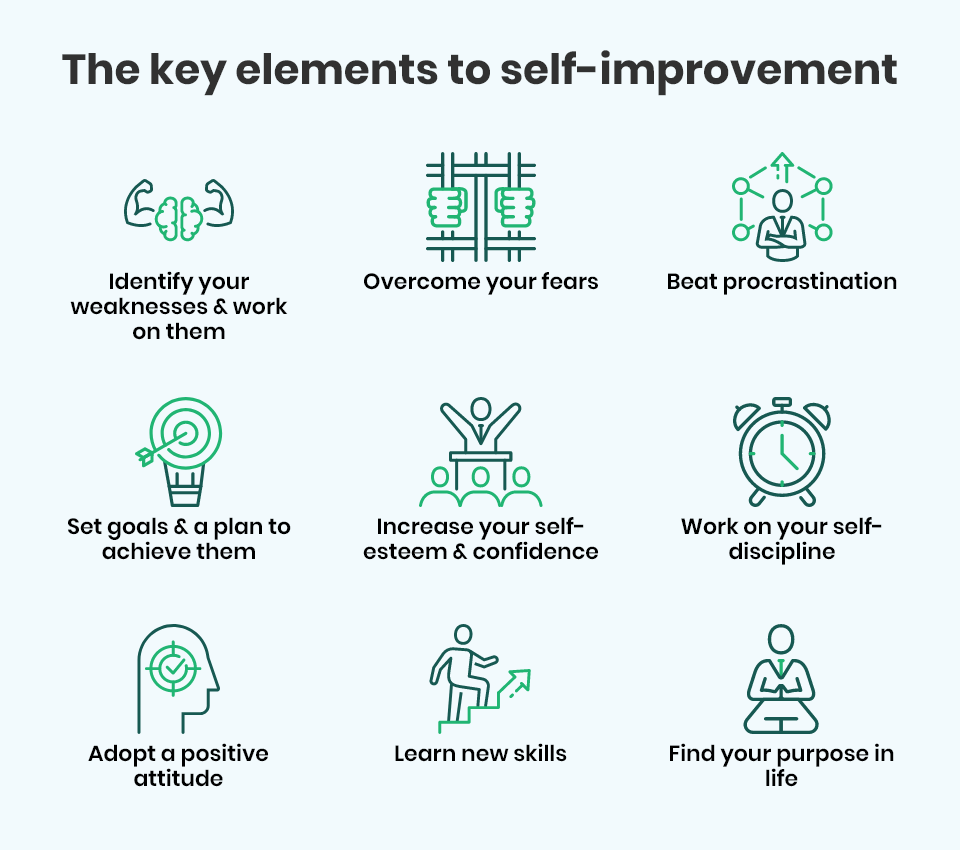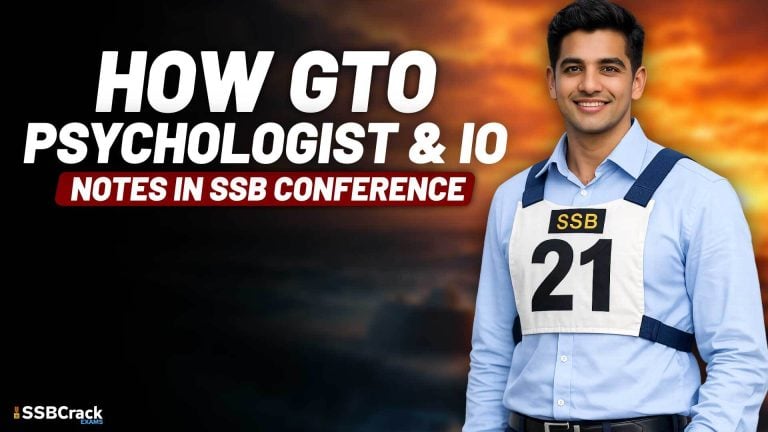The Self Description Test (SDT) is a psychological test administered to candidates applying for officer positions in the Indian Armed Forces during the Services Selection Board (SSB) interview. It is a written test that evaluates the candidate’s self-awareness, personality traits, and life attitudes. The self-description test (SDT) is a stage II SSB interview test. As the name implies, the Self Description Test (SDT) describes what is “I,” i.e., self, and everything related to self, such as what kind of person you are; what you want to become; and what your parents, friends, and teachers think of you.
The SDT is used to determine a candidate’s self-awareness, honesty, integrity, and suitability for a career in the Armed Forces. Trained psychologists grade the test, looking for consistency in the candidate’s responses as well as the candidate’s ability to reflect on their experiences and express themselves clearly and confidently.
The Self Description Test (SDT) requires the candidate to write down what the following people think of him/her:
- Your Parents
- Your Teachers/Employers
- Your Friends/Colleagues
- About Yourself
- What do you want to become?
The candidate is required to write down his/her own thoughts on what the people mentioned in all of the preceding categories think of him/her and what kind of person he/she aspires to be in life. Both the positive aspects of a candidate’s personality and the areas that he or she believes need to be improved must be articulated in four to five lines for each set.
Also read: How To Write Your Self Description In The SSB?
Things you should remember while writing your SD in SSB Interview
- Do not write more than five lines for each set, i.e. be exact and precise when writing the opinions of your parents/guardians, teachers/employer, friends/colleagues, and your personal view about yourself.
- Never copy someone else’s self-description; instead, be honest and solicit feedback from all of the people listed above in order to write an authentic self-description.
- In each set, the self-description must include some high and positive aspects of your personality as well as one odd perceived area of improvement.
- When describing an opinion, do not include OLQs or qualities. Instead of labeling yourself with positive adjectives, make them visible through your actions and deeds.
- When writing about an identified area for improvement in each set, avoid using intimidating words to describe it, and make sure that the shortcoming is not severe and irreversible.
- If the IO asks you about your weaknesses during the interview, you should be prepared to provide examples from your own life.
- Finally, SD is very personal to you, so it must be written in your own words and honestly, keeping the above fundamentals in mind.
NEVER WRITE: “My parents believe I am a hardworking, trustworthy, and obedient son/daughter.” Rather, write about how they recognize and value your hard work, dependability, and obedience. WRITE “My parents always include me in all important home decisions” (shows trustworthiness). They always entrust me with difficult tasks and challenges pertaining to our family matters and issues pertaining to others among our kith and kin because they believe I have the ability to handle them well and would never let them down (demonstrates a hardworking, resilient, and obedient person).”
NEVER WRITE: “My friends say I’m too picky when it comes to making friends, and that I can be aggressive and rude at times.” Negative talk, whether initiated by yourself or triggered by peer pressure, should not overshadow your personality. So, write, “My friends believe that I take a little time to open up (choosy to make friends), but once I do, I am a highly friendly person and that I get a little impatient at times when things do not go my way (aggressive), but I have started making a conscious effort to remain more composed and accept things as they come.”
NEVER WRITE: “I am stupid, foolish, or unimportant.” Avoid associating yourself with negative personality traits. Rather, WRITE “Sometimes I do stupid things but am gradually revived by positive self-talk.”
NEVER WRITE: “I feel I have no room for improvement, it’s complicated, and nothing will work for me.” Maintain a positive attitude and avoid self-doubt. Get rid of the negative self-concept theory. “I’ll give it another try unless I succeed in my endeavors,” write you. “I’ll approach it from a different angle and try to make it work in all possible ways.”
NEVER WRITE: “I am too lazy to do my work.” It is strongly advised that you do not describe yourself as lazy because the Armed Forces are all about action, toughness, and vigor. WRITE, “Previously, I wasn’t able to fit work (any particular job or task) into my schedule, but I can re-examine some priorities and eagerly embrace the opportunity to learn something new.”
Replace Negative thoughts with Positive Ones
Another point to consider is that the words we use with ourselves, both aloud and in our heads, begin to define the reality in which we live. When we label ourselves as undisciplined, lazy, or worthless, we begin to exhibit those traits in our daily lives. On the contrary, when we change the words we use to describe ourselves (both internally and externally), we begin to exhibit those positive behaviors more frequently. As a result, we should alter our self-talk. Negative thoughts and attitudes have been shaping our minds for a long time, beginning at a young age and becoming so subtle that we are oblivious to them. Knowing that pessimistic thoughts are harmful to nature is insufficient. We must actively seek to replace them.
When you think positively about yourself, you instill positive characteristics in yourself, and the response you give in a self-description test, in the form of thoughts, feelings, and actions against the constraint of time, you will not be able to fabricate your responses, and thus, your true self will be revealed. All aspirants should always do ‘timed practice’ and be ‘true’ to themselves when preparing for the self-description test. It would also be beneficial to discuss your responses with a professional mentor who can advise you on how to modify your natural thinking.
To crack the SSB Interview and join the Indian Army as an Officer, You can join our SSB interview live classes batch and we recommend you to Enroll SSB INTERVIEW ONLINE COURSE. Trusted by thousands of defence aspirants.
Also read:
- 18 Tips To Develop Vacha: The Link Between Manasa And Karmana
- 14 Psychological Tricks Everyone Can Use In SSB Interview
- Insights And Instructions For Psychology Tests At SSB Interview
- Psychology And SSB Interview Process: All Defence Aspirants Must Know
- The Basic Approach For Writing Self-Description In Psychology Testing













